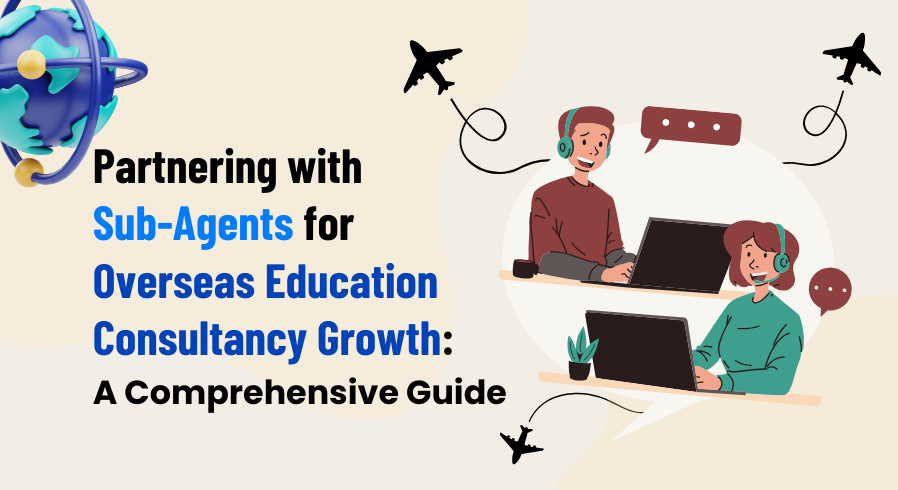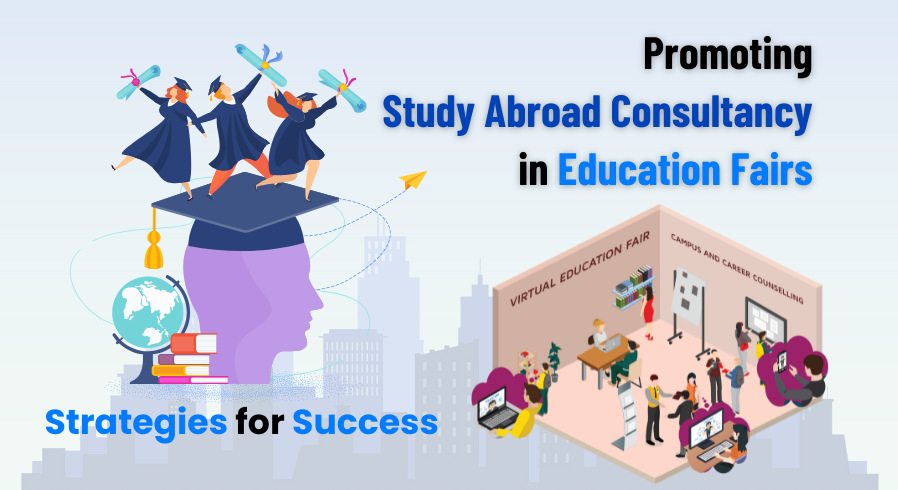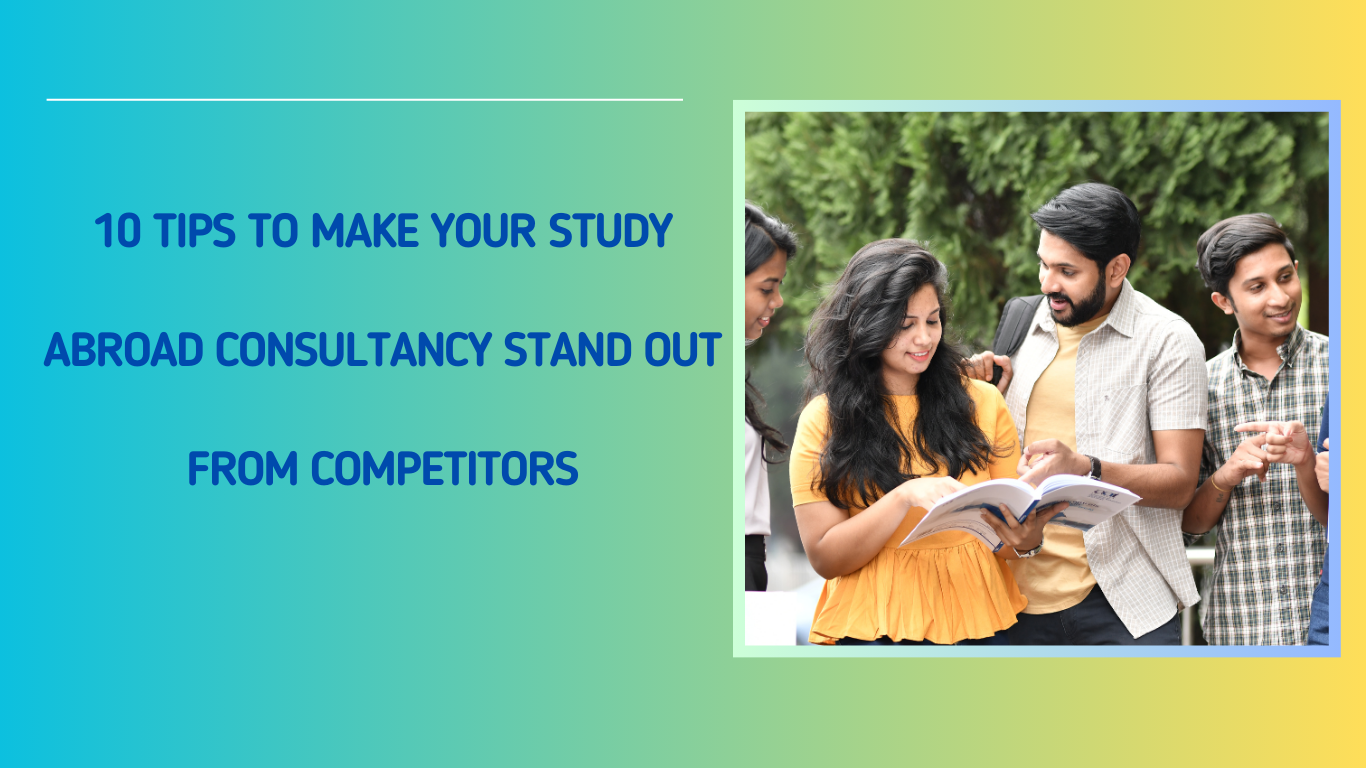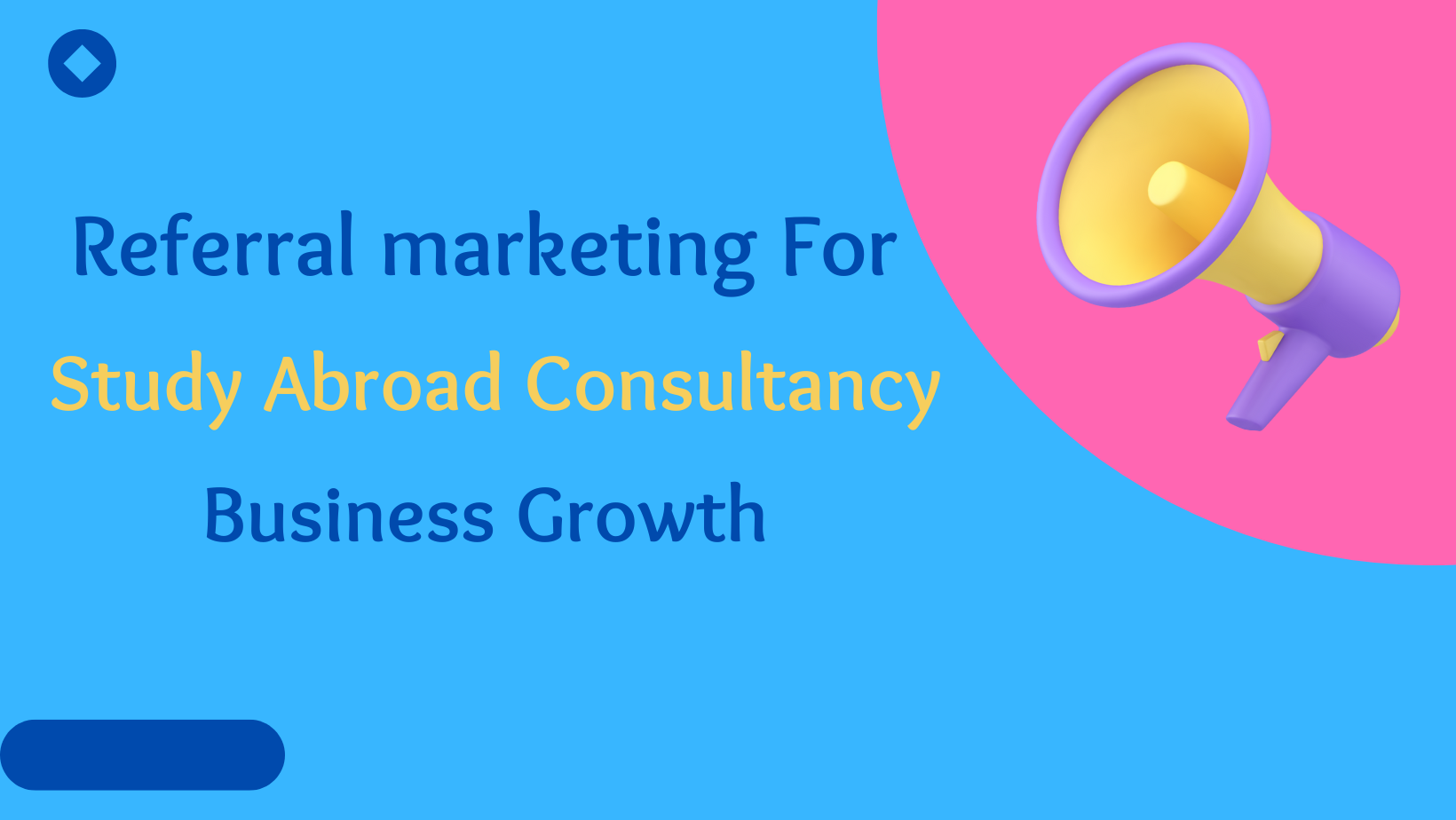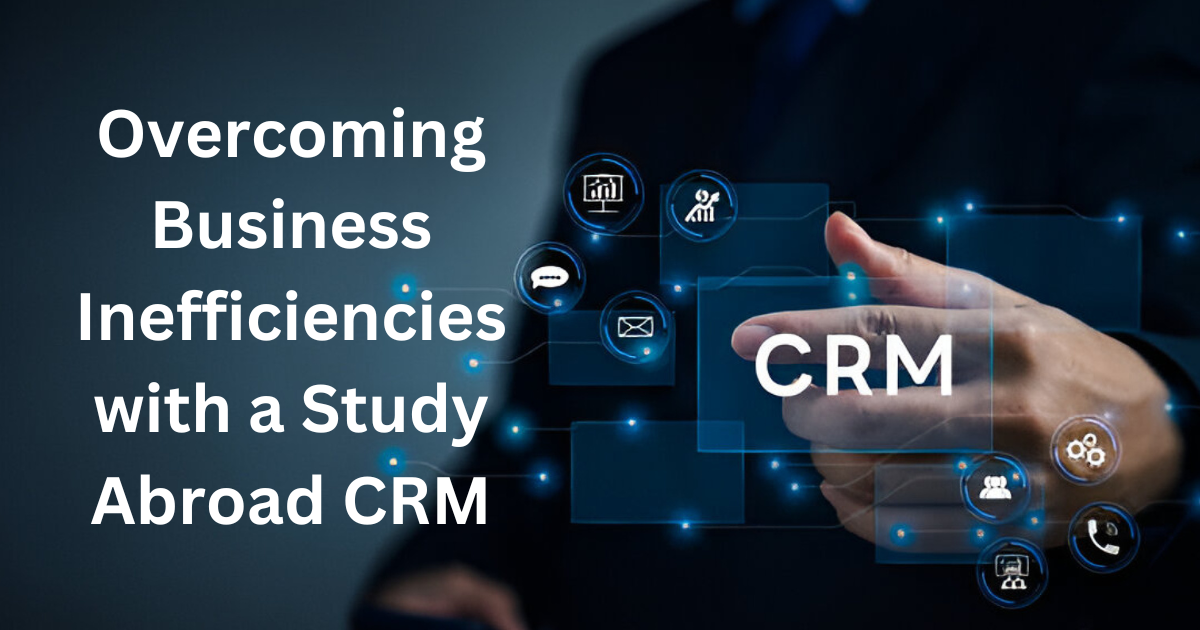Table of Contents
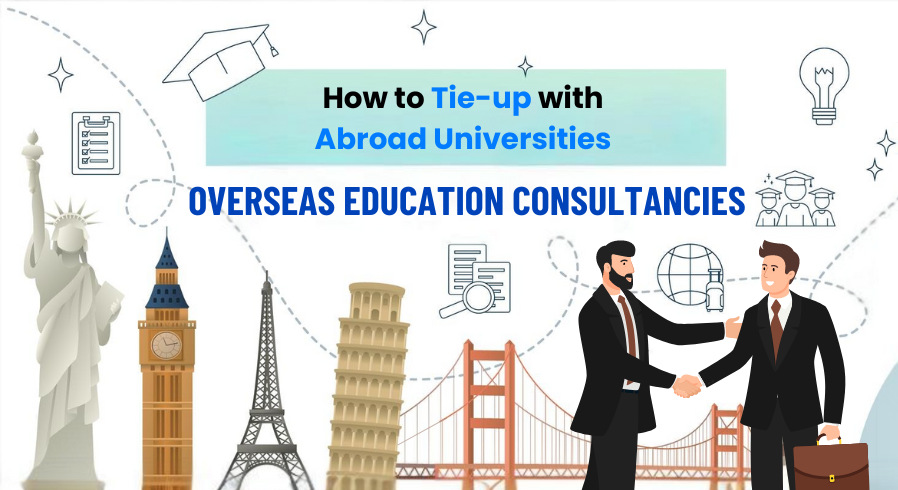
Introduction
In today’s world, educational agencies can work together with Universities internationally to obtain various business opportunities. This partnership raises cultural connections, supports academic development. The identification of the appropriate partner Universities acts as the first step in building a formal relationship with overseas universities, followed by finalizing agreements that encompass all the necessary steps along the way. I will supply you with a thorough, sequential outline for successful cooperation with organizations located in different countries.
Creating a partnership with international universities, however, is not a straightforward task. It involves detailed research, strategic planning, and consistent efforts. This article outlines a comprehensive roadmap for study abroad consultants seeking to forge lasting partnerships with global universities and offers actionable insights for effective collaboration.
1. Identify and Research Target Universities

The foundation of a successful tie-up is identifying the right institutions to partner with. Not every university will align with the goals of your consultancy or the needs of your students. Therefore, it is crucial to carefully research and select institutions that:
Offer the programs in high demand by your students (STEM, Business, Liberal Arts, etc.)
- Are ranked among the top universities globally, ensuring a high quality of education
Provide a welcoming environment for international students, including scholarships, support systems, and post-graduation opportunities
To begin this process, categorize universities based on geographic regions such as the U.S., the U.K., Canada, Australia, and Europe. Additionally, look at emerging study destinations in Asia, the Middle East, or Eastern Europe that offer quality education but may be more cost-effective for students.
Once possible partner institutions have been identified, go more into each one's admissions practices, foreign recruitment methods, and current partnerships with other consultancies. This can help you estimate their level of interest in collaboration and what you have to offer.
2. Leverage Alumni Networks and Connections

In many cases, your consultancy may already have a network of former students who have successfully studied abroad. These alumni are an invaluable resource when establishing university tie-ups. If they attended renowned institutions, they may have contacts or insights into the admissions process that could help you build connections.
Another way to leverage alumni is by creating success stories. Universities are keen to see the tangible results of their partnerships with agencies, so highlighting the achievements of your former students can be a powerful selling point. Consider setting up a “student success” section on your consultancy’s website, showcasing testimonials, stories, and achievements. This adds credibility to your agency and can serve as a persuasive tool when pitching partnerships to universities.
Apart from alumni, don’t underestimate the value of professional associations, academic conferences, and education expos. Many education consultants and university representatives attend these events, making them prime opportunities for networking and relationship building.
3. Attend Global Education Fairs and Networking Events

Education fairs and student recruitment events provide direct access to university representatives, making them an ideal platform to initiate partnerships. Attending such events should be a regular activity for study abroad consultants who want to grow their networks. At these fairs, universities are actively looking for reliable partners to help them recruit international students, making it an excellent opportunity to establish rapport and introduce your consultancy.
While attending, come prepared with a solid elevator pitch about your agency, including the number of students you can refer, your support services, and your recruitment strategies. Having a well-researched understanding of the universities you are targeting will also impress representatives, showing that you are not just another agency but one that genuinely wants to contribute to their recruitment efforts.
Additionally, consider following up after the event to nurture relationships with university representatives. A simple email thanking them for their time, combined with a brief introduction of how your consultancy can assist them, can go a long way in establishing a lasting partnership.
4. Build a Strong Value Proposition

When approaching universities, having a clear value proposition is essential. The university needs to understand what makes your consultancy different from the hundreds of others they may encounter. The more clearly you communicate the benefits of partnering with your agency, the higher your chances of securing a tie-up.
Your value proposition should include the following key components:
Student Volume and Profile: Be ready to provide data on the number of students you can refer each year, along with their academic qualifications, language proficiency (such as IELTS or TOEFL scores), and areas of interest. Universities want students who are well-prepared and likely to succeed, so showcasing the quality of your students can make your agency an attractive partner.
- Marketing and Recruitment Expertise: Demonstrate your expertise in digital marketing, campus outreach, or other innovative recruitment strategies that can help universities meet their international enrollment goals. Whether through social media campaigns, webinars, or workshops, your agency should have a plan for attracting prospective students.
Student Support Services: Highlight the comprehensive services you offer to students, including application assistance, visa support, pre-departure guidance, and accommodation arrangements. Universities want partners who will help students succeed not just in securing admission but also in settling into their new environment.
The more you can position your consultancy as a reliable, all-encompassing partner, the more likely universities will want to collaborate with you.
5. Formalize the Partnership with an Agreement

Once initial discussions have progressed and both parties express interest, the next step is to formalize the partnership through a Memorandum of Understanding (MoU) or a formal agreement. This document serves as the foundation for the collaboration and clearly outlines:
Roles and Responsibilities: Define each party’s role in the student recruitment and application process. Specify who is responsible for which tasks, from marketing to student counseling.
- Compensation: Universities offer referral commissions to agencies for each student successfully enrolled. The MoU should detail financial arrangements, including payment timelines and structures.
- Admissions Process: Clearly outline the step-by-step process for student referrals, including deadlines, documentation, and communication channels.
Support Services for Agencies: Some universities offer additional support to partner agencies, such as training webinars for staff, access to admission portals, or marketing materials. Ensure these provisions are included in the agreement.
This document not only ensures clarity and transparency but also protects both parties from potential conflicts.
6. Establish Consistent Communication

Maintaining a steady flow of communication is vital for a successful partnership. After establishing a tie-up, regular check-ins with university representatives will keep the collaboration strong. Use these touchpoints to:
Discuss the status of student referrals and address any issues that arise
- Share insights on trends you are noticing in student preferences or challenges in applications
- Collaborate on joint marketing efforts, such as hosting webinars for prospective students or co-branded events
Stay updated on changes in the university’s admission criteria, deadlines, or scholarship offerings
Maintaining a close, proactive relationship will help your consultancy stand out as a reliable partner, keeping you top of mind when new opportunities arise.
7. Utilize Technology for Seamless Collaboration

In today’s digital world, utilizing technology can significantly enhance the efficiency and effectiveness of partnerships. Establishing a well-organized CRM (Customer Relationship Management) system can help you manage student referrals, track the progress of each application, and maintain records of your partnerships.
Furthermore, many universities have digital portals specifically designed for education consultants. These platforms allow consultants to submit student applications, track their status, and receive real-time updates. Make sure to familiarize yourself with these systems to streamline your workflow.
Additionally, universities often provide marketing assets such as brochures, promotional videos, or student testimonials. Sharing these digitally on your website and social media channels can amplify your efforts in attracting prospective students.
8. Offer Additional Value-Added Services

To stand out among other agencies, it’s essential to provide services beyond basic student referrals. Position your agency as a full-service provider by offering additional value-added services such as:
Language Training: Offer IELTS, TOEFL, or other standardized test preparation to students.
- Cultural Orientation: Help students prepare for life in their destination country with workshops on culture, safety, and adjusting to a new academic environment.
Post-Admission Support: Assist students with securing accommodation, understanding health insurance requirements, or arranging airport pickups.
Universities appreciate consultants who offer more holistic support to students, ensuring their success even after they arrive on campus.
9. Monitor and Evaluate the Partnership’s Success

After establishing tie-ups with universities, it is essential to consistently monitor the performance of these partnerships. Set key metrics to assess success, such as:
The number of students referred annually and their admission rates
- Feedback from universities regarding the quality of the students you send
- Student retention rates and their satisfaction with the university experience
Financial returns from the partnership in terms of commission or incentives
By regularly evaluating these factors, you can make adjustments as needed to improve the partnership or explore new opportunities for growth.
Conclusion
Establishing a tie-up with international universities is an effective way for study abroad consultants to expand their offerings and build credibility. Through strategic research, proactive networking, and a strong value proposition, consultants can successfully collaborate with universities worldwide. Once these relationships are established, consistent communication, use of technology, and value-added services ensure the partnership’s long-term success. Ultimately, these collaborations benefit both the consultancy and the students they serve, creating opportunities for global education and academic success.
By following these steps, study abroad consultants can not only increase their referral rates but also establish their agency as a trusted global education partner.




